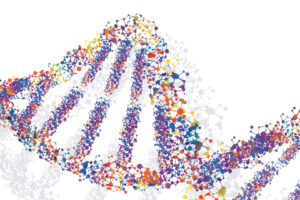While there can be a genetic link to developing breast cancer, nurse practitioner Karen Lowe, DNP, MSN, RNC-Ob, with the Statesir Cancer Center at CentraState, says that it’s important that both women and men understand that they can still be diagnosed with the disease without a family history. The key is practicing breast self-awareness – knowing what is normal for your breasts – and seeking help if there’s a change. Below, Lowe provides tips for doing so.
What Should You Look For?
Keep an eye out for:
◗ Any changes in the look or feel of your breasts
◗ Nipples that are pulled in a different direction
◗ Bulging of the skin or dimpling
◗ Redness or swelling
◗ Discharge from the nipples
◗ Asymmetry when you raise your arms above your head.
Curious about what a lump feels like? OB/GYN Margaret Dufreney, MD explains.
What If I Notice a Lump?
Concerning lumps are hard, don’t move, can feel irregular in shape and are usually painless. Overall, about 60% to 80% of breast lumps are not cancerous. But talk to your provider about any lump or change you see or feel in your breasts.
Should Men be Concerned About Breast Cancer?
Breast cancer in men is rare, accounting for almost 0.5% of breast cancer in the United States. The most significant risk factor for breast cancer in men is genetics, particularly having genetic mutations like BRCA 1 or 2 or a family history. Other risk factors include obesity, being over age 50 and having a history of radiation, hormone therapy or liver disease. It’s a good idea for men to practice breast self-awareness, especially if they have risk factors for breast cancer.
When Should Women Start Getting Mammograms?
Women at average risk of developing breast cancer can start getting screening mammograms at age 40. Those at high risk – such as having a personal or family history of breast cancer or having genetic mutations – should talk to their provider about whether to begin screening mammograms earlier.
At the Star and Barry Tobias Women’s Health Center, we make getting a mammograph easy. If you’re 40 or older, due for your “routine” mammography screening and have no symptoms, just make an appointment and come on in.
MAMMOGRAPHY SCREENINGS AT CENTRASTATE
Learn more about mammography screenings at CentraState or schedule your routine mammogram appointment online.





